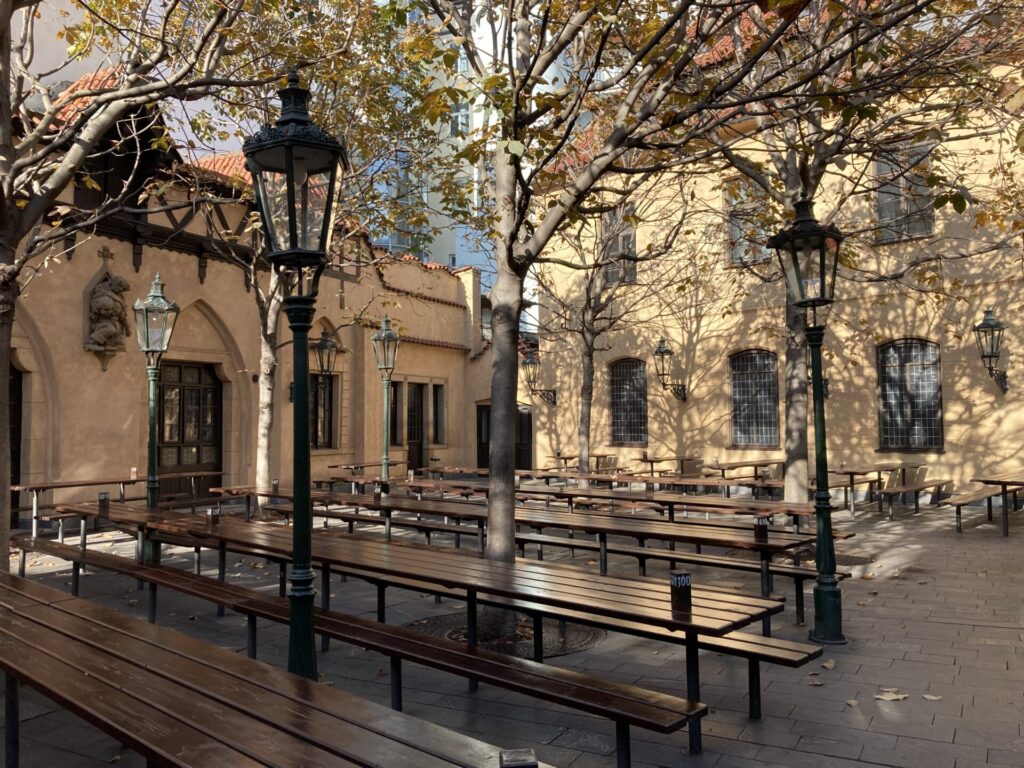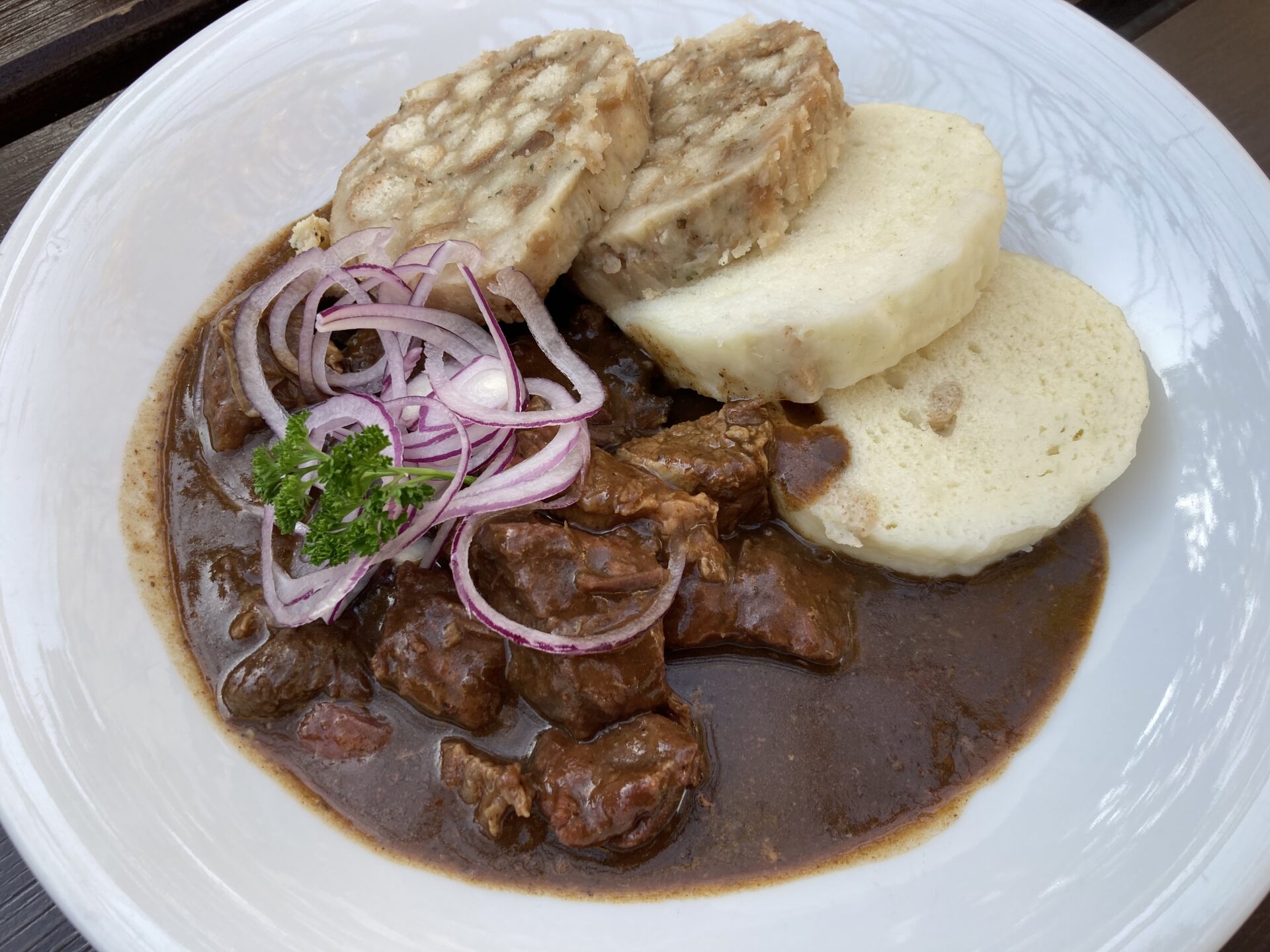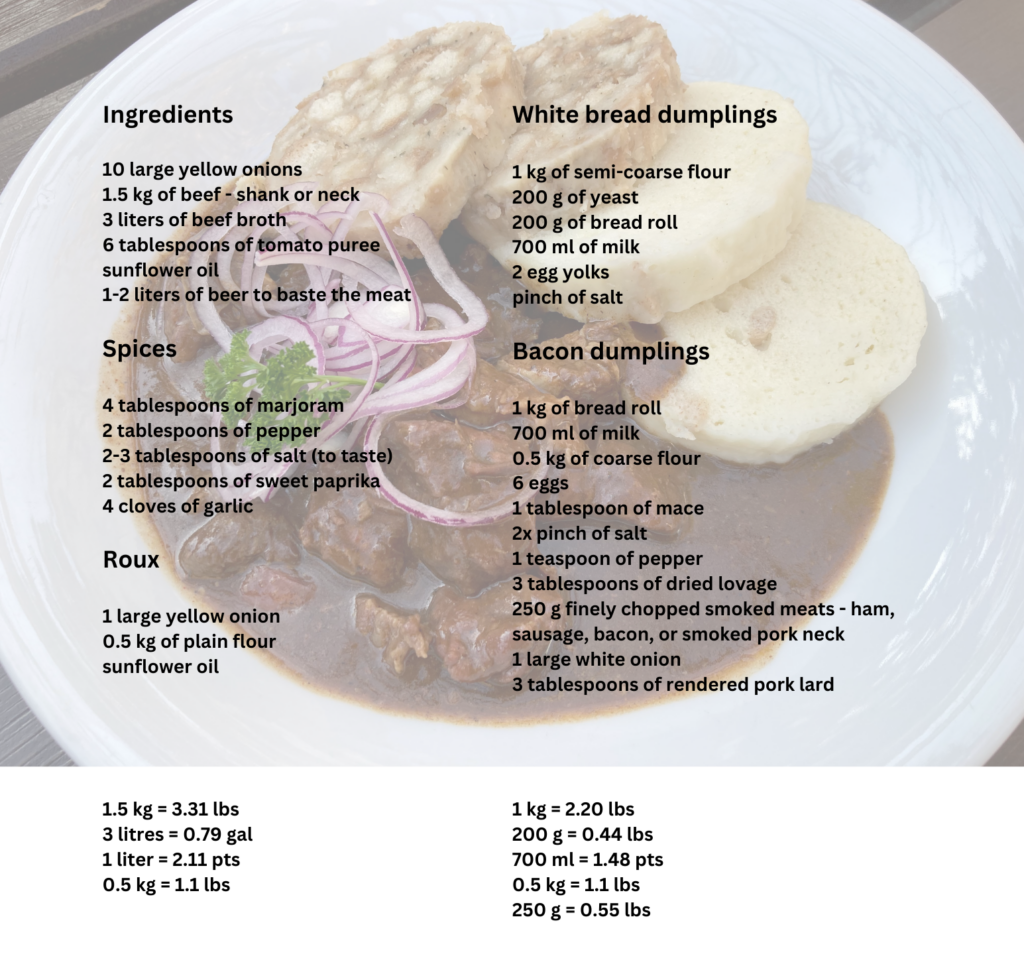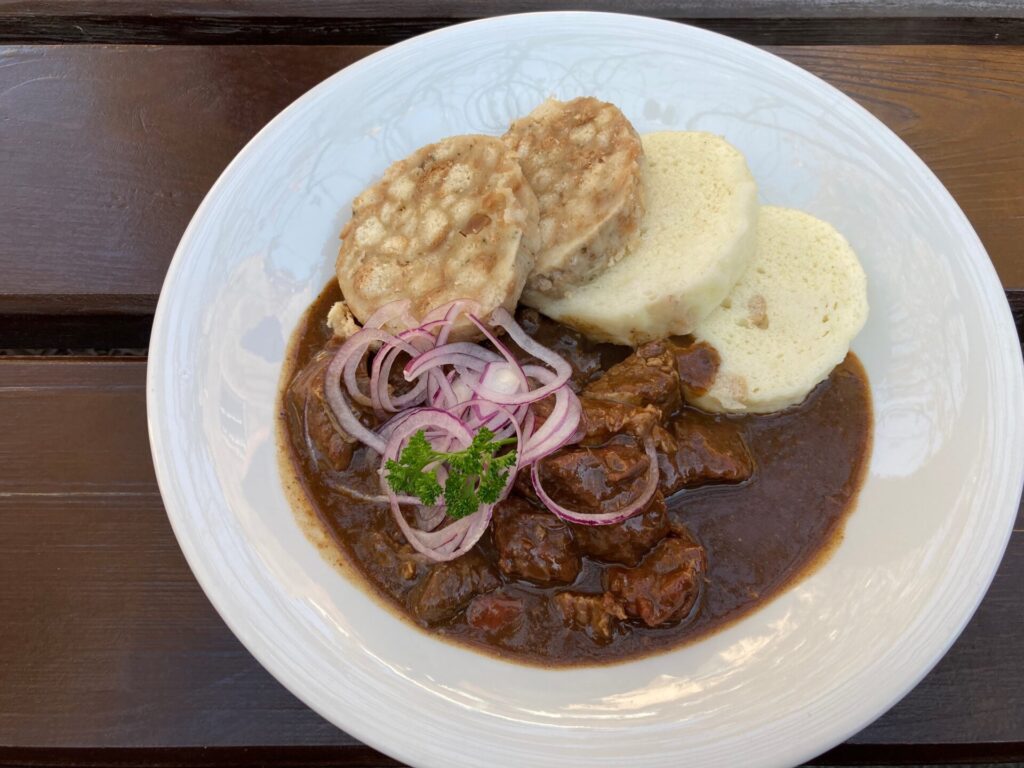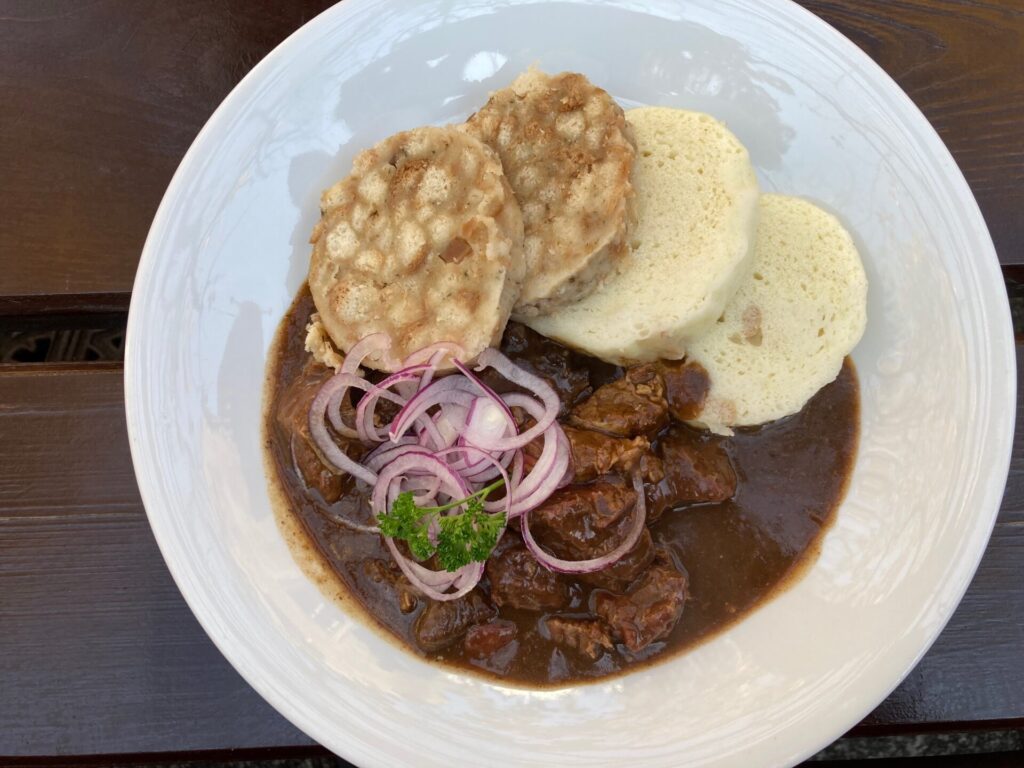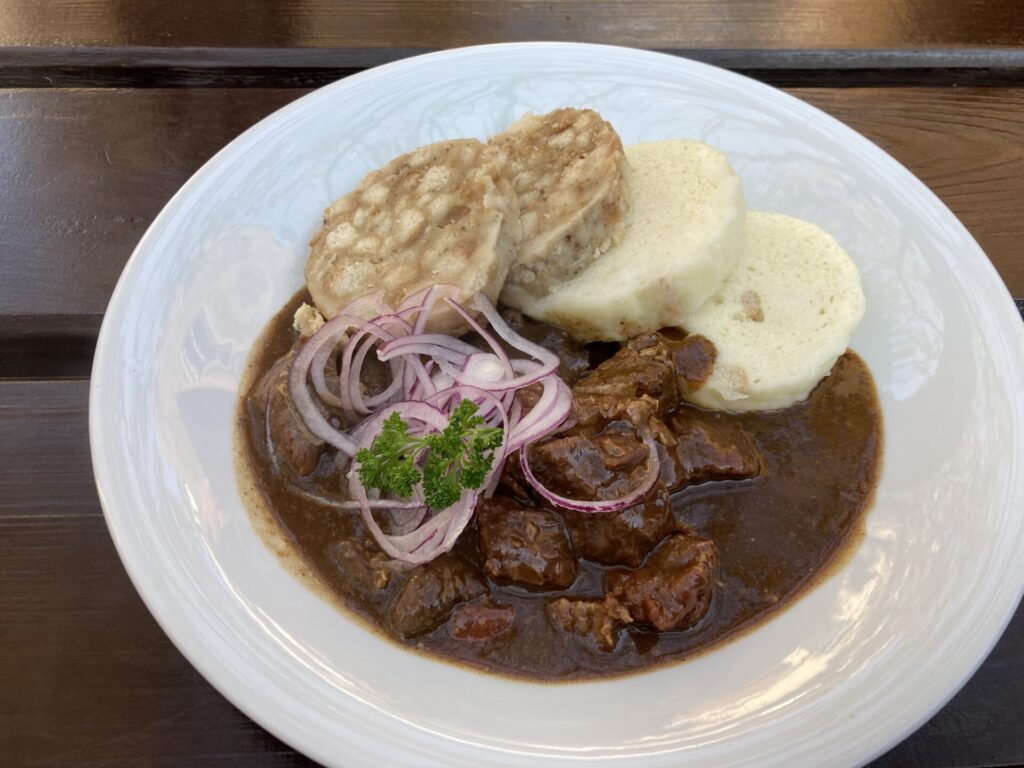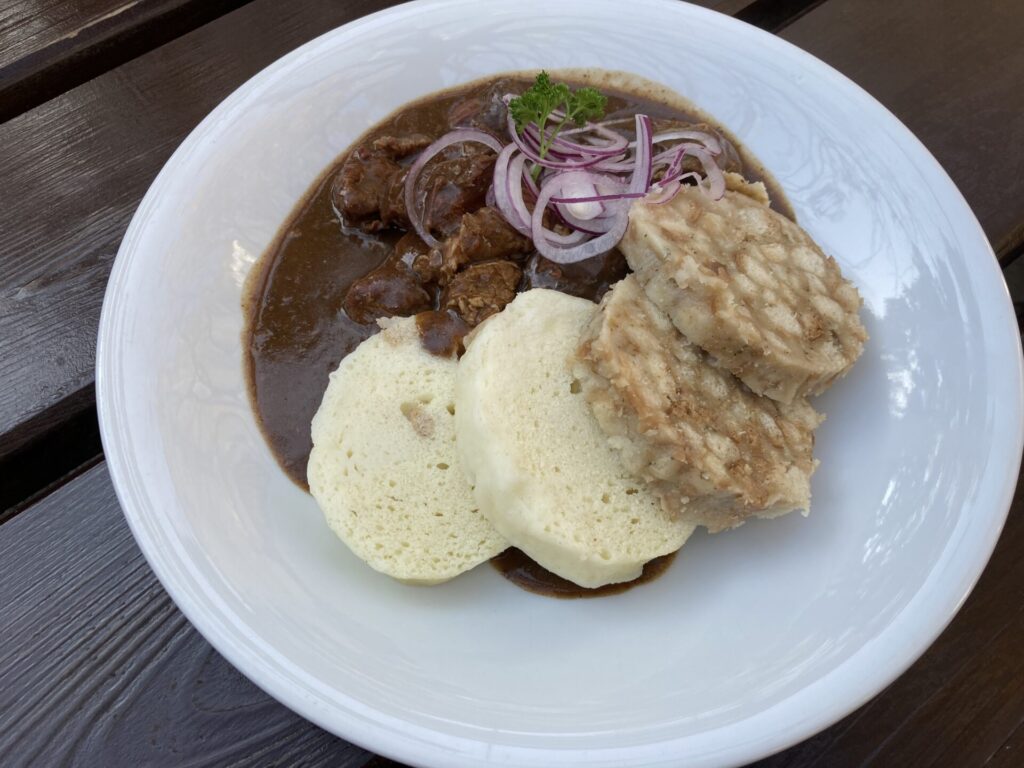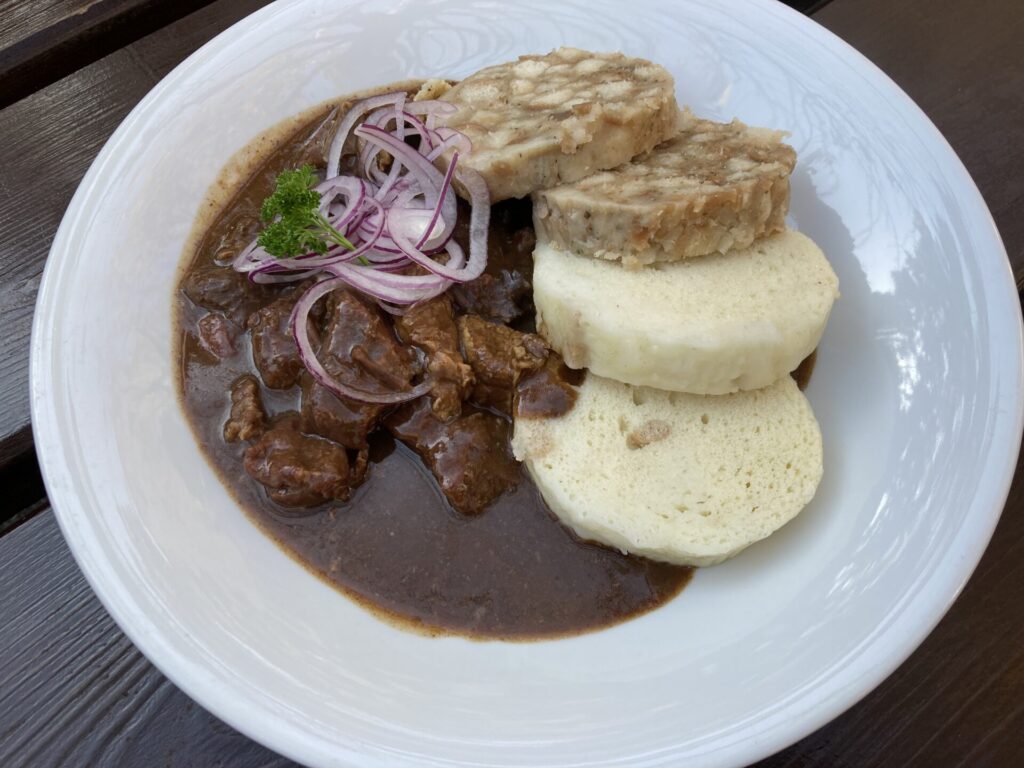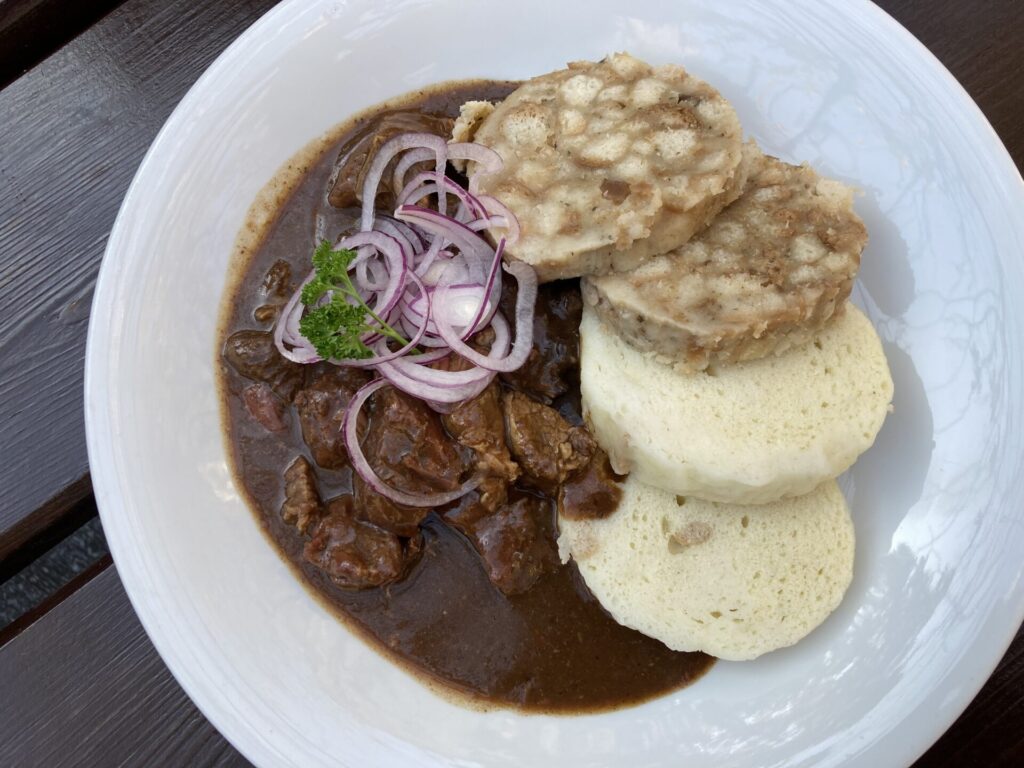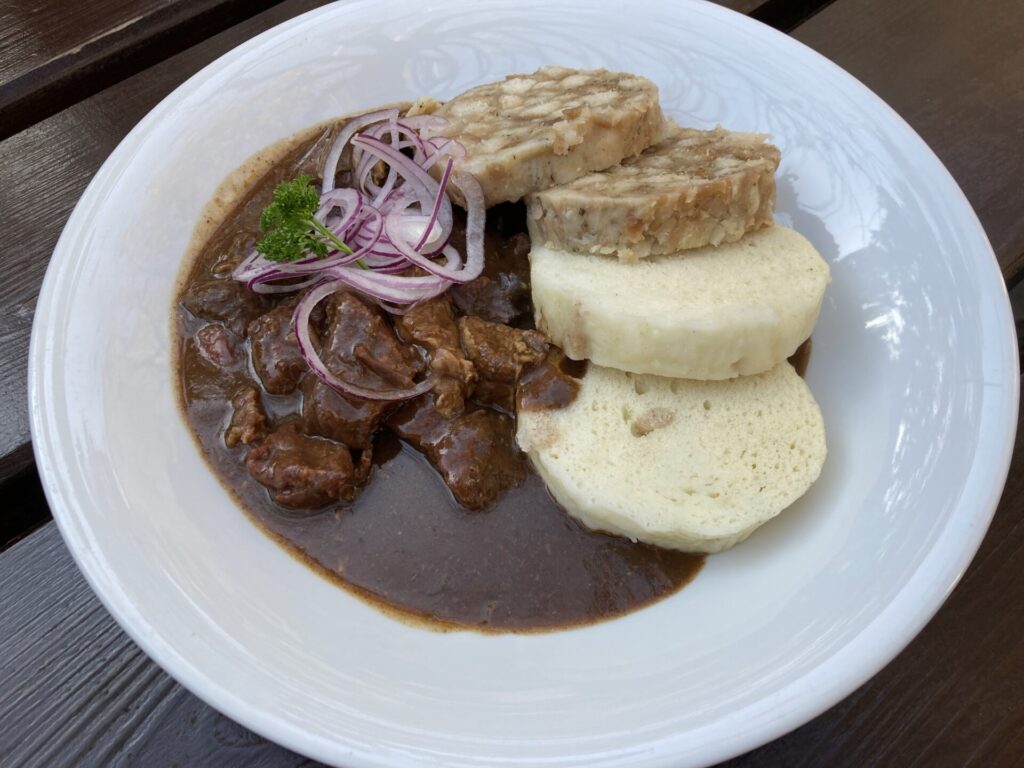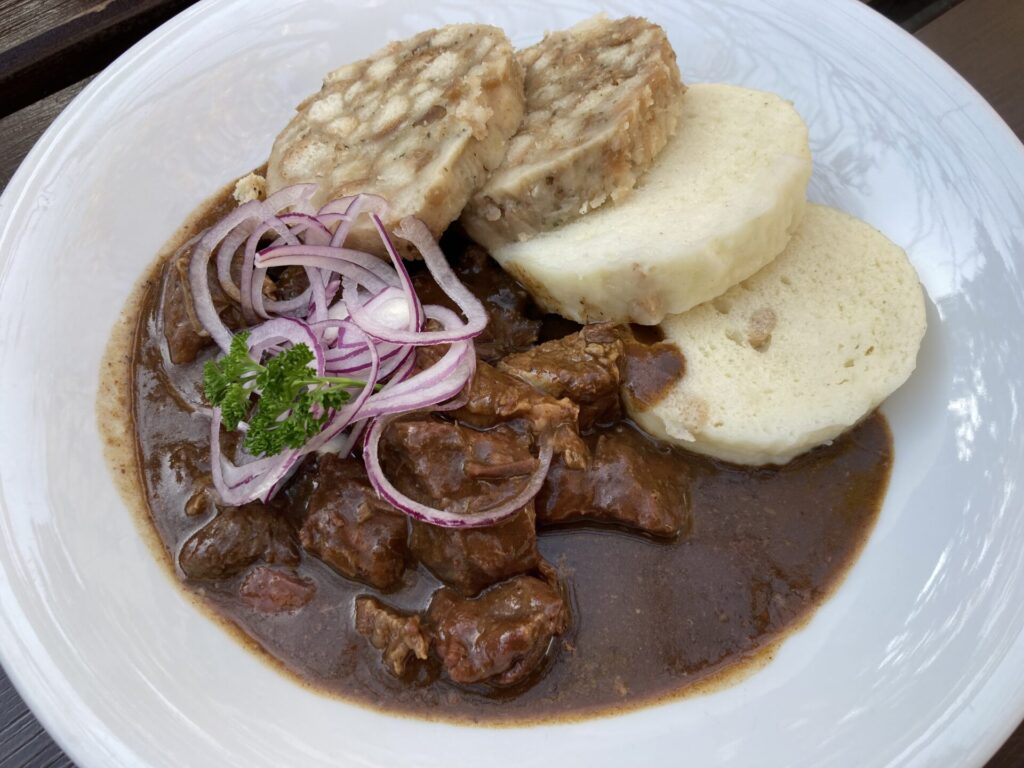U Fleků / 10 Servings
Ingredients
10 large yellow onions
1.5 kg of beef – shank or neck
3 liters of beef broth
6 tablespoons of tomato puree
sunflower oil
1-2 liters of beer to baste the meat
Spices
4 tablespoons of marjoram
2 tablespoons of pepper
2-3 tablespoons of salt (to taste)
2 tablespoons of sweet paprika
4 cloves of garlic
Roux
1 large yellow onion
0.5 kg of plain flour
sunflower oil
1. Chop the onion finely, and fry it in oil or lard so that it darkens slightly. It must not burn, otherwise, the goulash would be bitter.
2. Add meat cut into larger cubes, 2-4 cm. The size of the meat cubes is quite important: larger meat cubes look better on the plate, small ones will cook faster and the meat would not look nice on the plate.
3. Let the meat sear, add the tomato purée, and baste the meat with the broth. Braise until tender, approximately 2.5-3 hours, depending on the type of meat.
4. Baste the meat with beer during stewing.
5. Remove the meat from the sauce and prepare the roux: finely chop the onion and fry it in oil. Add the plain flour and fry this as well. We do not add any water or broth.
6. Thicken the sauce with roux and boil everything thoroughly.
7. Season at this stage: add pepper, garlic, and salt, to taste. We also add paprika (if we used it earlier, the goulash could become bitter).
8. Strain or sieve the sauce so that it is fine and smooth. Then we put the meat back into the sauce so it can soak in it.
Advice from chef Zdeněk Turšner
- Shank is better for goulash because it is more marbled, it releases fat during cooking and the sauce is more flavourful.
- Use part of the salt to salt the meat immediately after cutting; then it has a better taste and is more fragile.
- The sauce is flavored only at the end of cooking, as needed.
- The amount of garlic depends on how flavourful it is – and also on your preferences.
- The same goes for paprika.
- Goulash at U Fleků has a unique taste because the chefs use their own beer to baste the meat; at home, use another bottom-fermented beer, the so-called lager.
- The goulash tastes better the next day when the meat absorbs more moisture and gets more tender.
White bread dumplings
1 kg of semi-coarse flour
200 g of yeast
200 g of bread roll
700 ml of milk
2 egg yolks
pinch of salt
1. Heat half the amount of milk and crumble the yeast into it to form a leaven.
2. When the leaven rises, pour it into the semi-coarse flour we salted before. We start kneading the dough.
3. Add two egg yolks and continue kneading.
4. Finally, add the bread roll to the dough – carefully, so that the bread roll does not crumble.
5. Let the dough rise – about 30 minutes until it rises nicely.
6. Roll the dough into loaves weighing approximately 800 g.
7. Place the loaves in boiling water and cook for 35-40 minutes. The dough loaves will float to the surface of the water, turn them “belly up” in the middle of cooking.
8. Remove the cooked dough loaves from the water and pierce them in several places with a fork to prevent them from shrinking.
9. Cut the warm dumplings into individual slices with a thread. If slicing the dumplings after they have cooled, slice them with a knife.
Bacon dumplings
1 kg of bread roll
700 ml of milk
0.5 kg of coarse flour
6 eggs
1 tablespoon of mace
2x pinch of salt
1 teaspoon of pepper
3 tablespoons of dried lovage
250 g finely chopped smoked meats – ham, sausage, bacon, or smoked pork neck
1 large white onion
3 tablespoons of rendered pork lard
1. Cut the bread rolls into cubes with an edge of 1.5-2 centimeters (the dumpling then has a nice structure).
2. Make dough from milk, flour, and eggs.
3. Season the dough with salt and pepper, and add nutmeg flower and lovage.
4. Cut sausage and onion into small cubes.
5. Stir-fry the chopped onion in the lard until golden brown.
6. Add the sausage and stir-fry, then season with salt and pepper and set aside.
7. Mix this mixture with the chopped bread rolls.
8. Add the prepared dough and gently mix everything from the bottom.
9. Shape into rolls or balls with a diameter of 3-5 cm.
10. Boil in water for approximately 50 minutes.
Weight, volume, and length conversion table
1 kilogram (kg) = 100 decagrams (dkg) = 1000 grams (g)
1 liter (l) = 1000 milliliters (ml)
1 meter (m) = 100 centimeters (cm)
1 kg = 2.20 lb
1 l = 2.11 pt
1 m = 3.28 ft
10 cm = 3.94 in

